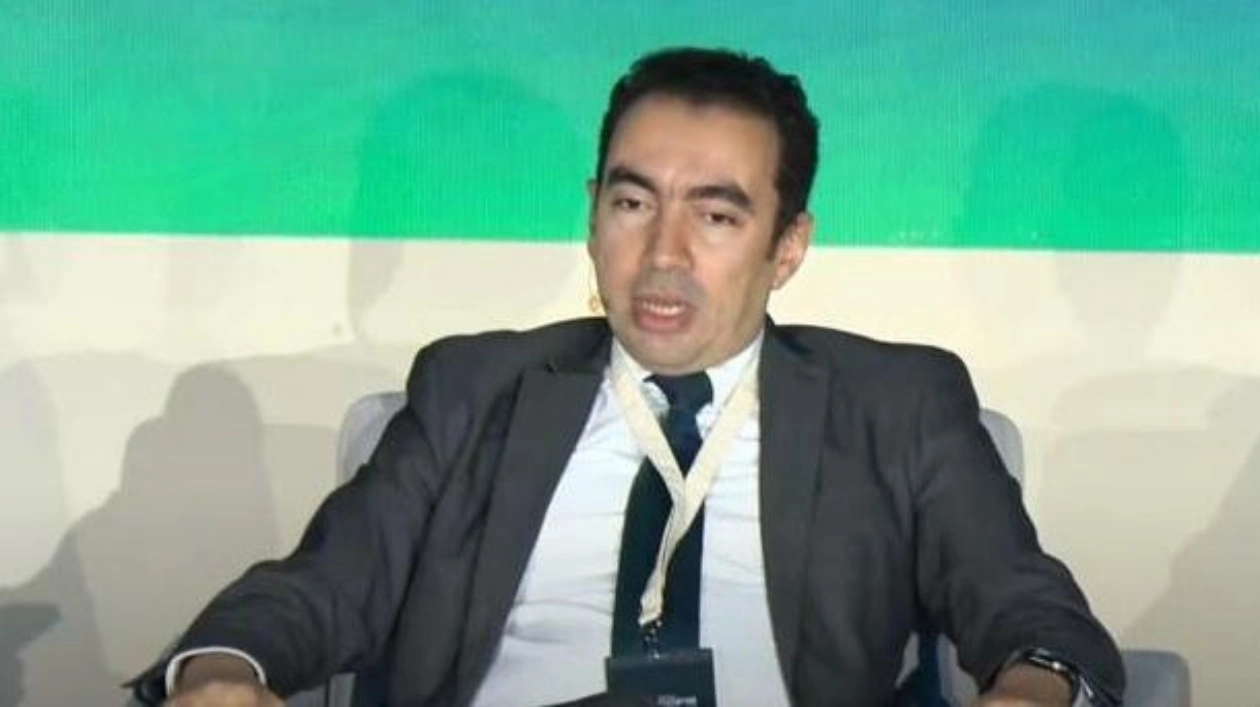RIYADH: The concept of blended financing, which combines public, private, and corporate funding for startups, is essential for promoting sustainable entrepreneurship worldwide, according to an official.
During COP16 in Riyadh on December 11, Tamer Taha, Digitalization and Entrepreneurship Adviser to Egypt’s Ministry of International Cooperation, stressed that startups should aim to attract investors who understand the implications of climate change and the importance of sustainable practices.
Blended finance brings together philanthropy, government funding, corporates, and private sector investors with varying risk and return expectations under one umbrella, where they pool resources for specific projects.
In response to the global push for a greener future, equity funding for startups focused on cleantech and sustainability has declined this year. Data from Crunchbase shows that startups in sustainability, electric vehicles (EV), and cleantech sectors raised $9.6 billion in the first half of the year, marking a 10 percent drop compared to the same period in 2023.
At the event in Riyadh, Taha stated: “Sustainable entrepreneurship is a business that balances profitability and impact. It aligns with the long-term vision of sustainable development goals, both national and UN SDGs.”
He added: “The MENA region receives only 1.5 percent of climate venture capital funding, despite being one of the most affected by climate change. Encouraging corporate investment in startups, along with matching investments from governments and public funds, could support growth-stage startups.”
Taha also highlighted that sustainable entrepreneurship requires policy coordination, networking, and capacity building. He noted that government regulations, including incentives and subsidies for startups adhering to sustainability initiatives, are crucial for fostering sustainable entrepreneurship.
He further pointed out that a lack of technological skills is a significant challenge for startups pursuing sustainability. According to Taha, assembling a tech-savvy team and developing strong business development skills are key to overcoming these obstacles.
“We need to embrace more technology and innovation. Startups should deliver real, impactful solutions to transform the big pledges discussed at these conferences. This must be achieved through a multi-stakeholder approach,” Taha said.
During the same session, Hamza Rkha Chaham, co-founder of agricultural services firm SOWIT, echoed similar views, emphasizing that investors should prioritize the socio-economic impacts of their investments and focus on sustainability.
“Sustainable entrepreneurship is an entrepreneurial initiative that embeds sustainability in its core, in its DNA,” Chaham said.
He added: “An entrepreneur must be clear about their goals. Profitability is secondary to the ability to sustain livelihoods. You need to find an investor who values long-term investments, prioritizing the environment.”
Chaham also stressed the importance of government support for startups to achieve their sustainability objectives. He noted that startups, unlike large corporations, can more effectively adopt sustainability practices due to their ability to quickly deploy teams and implement actions.
“In the face of climate change and current geopolitical challenges, bolder actions are necessary to address the evolving issues,” Chaham said.
In a separate panel discussion, Mohammed Al-Ariefy, Saudi Arabia’s deputy minister for entrepreneurship at the Ministry of Communication and Information Technology, highlighted that the Kingdom prioritizes technology aligned with Vision 2030 goals.
He added that sustainability impacts will enhance the potential success of technology startups. “Our focus starts with policy and regulations, identifying gaps between them. Capacity building is also crucial. Access to talent is a major challenge for technology companies, including those in water and food security,” Al-Ariefy said.
He further noted: “We also focus on access to finance, various incentive programs, and subsidies. The National Technology Development Program has supported many companies in the food and water security sector.”
The deputy minister added that the ministry is assisting technology companies in overcoming barriers and accessing new markets.
Source link: https://www.arabnews.com






